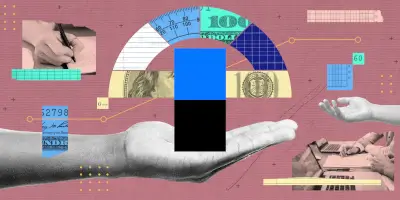Credit history, explained
Credit history is a record of how you’ve managed your credit and debts in the past, and how you repaid those. Did you pay reliably on time? Did you miss some payments and then catch up later? It would also include a record of your current debt: what you owe to what organization.
Myth: your credit history doesn’t matter unless you’re getting a house or a new credit card.
Most people think of credit history only in the context of traditional lending—like getting a new credit card, applying for a mortgage or buying a car—but it’s used for so much more than that. Your credit history might be accessed in many different areas of life:
Getting a job—in particular jobs with access to sensitive information or financial related industries are likely to look at your credit report if you’re being considered for employment
Renting a home or apartment
Paying a deposit for services like utilities or cell phones
Taking out an insurance policy: insurance companies will use your credit history and that will influence the availability of coverage and the rates you pay
Opening and maintaining checking and savings accounts
Getting credit cards, auto loans, mortgages—to determine your eligibility and the cost you’re going to pay in interest or fees
Credit reports and bureaus
Since credit history is so important, how is it that people access your credit history? Credit Bureaus are the primary source for credit history data.
There are three credit bureaus in the United States: Equifax, TransUnion and Experian. But in addition to the traditional credit bureaus, there are other sources of credit history data that banks, rental agencies or employers may use.
Myth: only the big credit bureaus create credit reports.
In addition to the big three bureaus, it’s important to know that there are specialty credit bureaus that are used for different purposes. Each one plays its own space in the market:
Veritec is specifically used for payday lending and creates state-level payday lending databases
Chexsystems is the primary credit bureau that is used for checking and savings accounts; it’s similar to the main three bureaus, but it’s often used for ID verification, data on rent and utility payments and it collects information about overdraft fees and your history with checking and savings accounts in the past
Clarity is also used for payday loans, non-prime lender data like check cashing and rent to own
Factor Trust, Innovis, LexisNexis and Teletrack are just a few other names in the alternate credit history space. These reports are prominently used for fraud and identity verification or by alternate lenders like lease-to-own or payday lenders.
It doesn’t stop here. As part of our commitment to our customers’ financial wellbeing, this financial literacy series will break down these topics. Our mission at Possible is to help you end the debt trap and unlock economic mobility for good. 🟦















